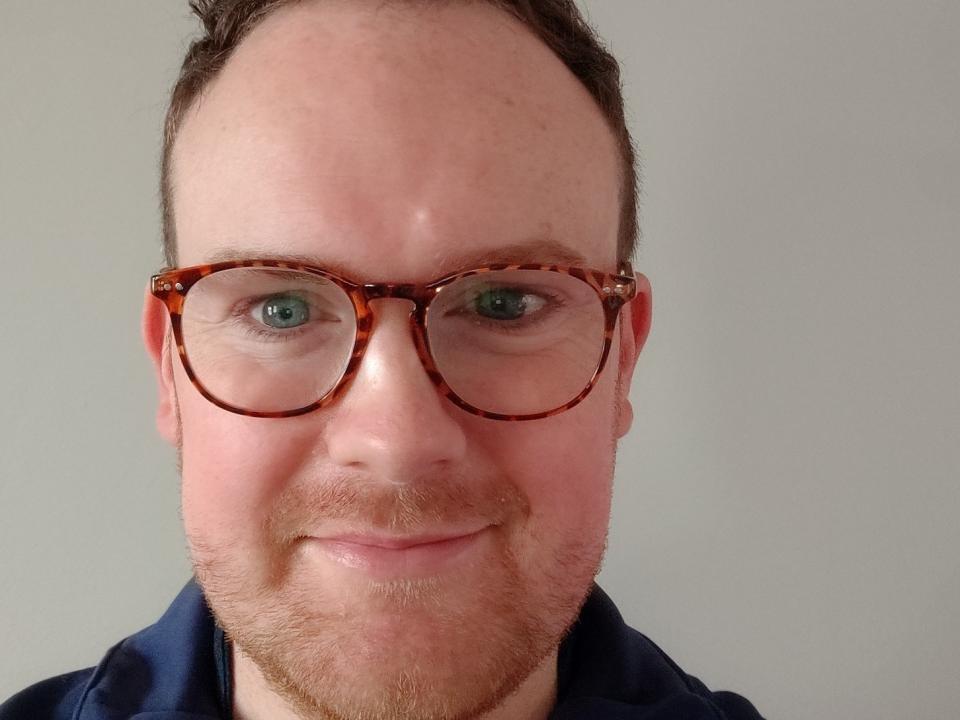New Translational Research Fellow: Dr Graeme Sullivan
The Irish Cancer Society is delighted to announce that Dr Graeme Sullivan is the recipient of the 2021 Translational Research Fellowship. After a thorough competitive review process, Dr Sullivan’s fellowship was selected for funding at the Royal College of Surgeons in Ireland. Graeme will spend two years on his project, titled “Defining the pro-survival signalling of the bone marrow microenvironment of multiple myeloma”.
Bio
Dr Sullivan is a graduate of Trinity College Dublin (TCD) where he graduated from Dental School and gained a keen interest in medical research. He embarked on his doctoral studies in molecular cell biology under Prof. Seamus Martin (Smurfit Institute of Genetics, TCD) to pursue his passion: medical scientific research. He was awarded a prestigious GOIPG IRC Scholarship Award to pursue these studies. During this time, Graeme published nine original research articles in international peer-reviewed scientific journals, and is a co-inventor on an approved medical patent.
He has presented his research at international scientific conferences and was recently awarded 1st place at the 27th Annual European Cell Death Organization Meeting poster-prize session.
Underpinning his research career is an intellectual curiosity examining the interplay between (a) cell death, (b) cell stress and (c) inflammation in health and disease. Graeme joined the Targeted Therapeutics in Cancer Research Laboratory of Dr. Tríona Ní Chonghaile’s in 2020 as a post-doctoral researcher focusing on the mechanistic understanding and biological targeting of novel factors central to cancer treatment failure and relapse.
Project summary
Multiple Myeloma (MM) is an incurable blood cancer that grows in the bone marrow (BM) and usually affects older people. Despite significant improvements in treatment, eventually the cancer relapses and becomes even harder to treat. New approaches are needed to treat the relapsed MM disease. This project aims to:
1. Understand why existing treatments may not kill all the cancer cells (foundation)
2. Identify novel factors from the bone marrow microenvironment that we can therapeutically target in the laboratory setting (validation)
3. Test these new drug combinations in multiple myeloma (MM) patient samples to translate our findings for improved survival and quality-of-life outcomes (translation)
Understanding how to target and drug novel microenvironmental factors will enable us to overcome the counterproductive effects of current MM treatment regimens.

Q & A with Dr Sullivan
Reasons for applying for the Irish Cancer Society fellowship programme:
I applied to the Irish Cancer Society Translational Research Fellowship programme because I knew from the Society’s track record that it would allow me to pursue world-class research with active patient involvement and invaluable support. The strategic objective of this Fellowship programme closely aligns with my ambition: to deliver patient-centred research that aims to translate insights about cancer biology into concrete real-world novel therapeutic strategies that accelerate progress toward improved patient outcomes.
What made you interested in the topic of your research?
My interest in this research was piqued during my PhD studies where it became clear that there is a unique, broadly underappreciated, interplay between the agents that we use to kill cancer cells and the unintended, unwanted pro-inflammatory side-effects that these treatments can have. It fascinated me how this may be leading to treatment failure and resistance in a disease that has been termed a ‘silent killer’ cancer: Multiple Myeloma. Given my background and training, I felt that I could comprehensively address this topic of research with the ultimate goal of improving the lives of patient’s with Multiple Myeloma by targeting factors that we identify as key to overcoming resistance to existing regimens.
What do you personally hope to get out of the fellowship?
This Irish Cancer Society Translational Research Fellowship is an exemplar for the active involvement of patient’s across all stages of the research process. I sincerely hope that my own research will make a significant difference. A difference to the academic community’s understanding of the reasons for treatment failure and resistance but also a difference to the many cancer survivors and their families who depend on us to make the new discoveries that lead to better treatment options and improved quality of life for all of us.
Future career plans
My short-term career goal is to become an experienced multidisciplinary multiple myeloma cancer researcher. Through this Fellowship, I will get an opportunity to travel to the laboratory of Professor Salamon Manier (University of Lille), a leading expert in animal models of multiple myeloma where I will expand my skillset in myeloma research greatly. Long-term, this Fellowship programme will allow me to transition from postdoctoral researcher towards my long-held ambition: to be an independent, competitive, world-class scientific researcher and group leader. One that leads from the fore and that makes new scientific discoveries. My group will seek to improve our molecular understanding of targeted therapies in the field of cancer biology and translate these findings into tangible, accessible new treatments . Through active collaboration and involvement of cancer patient’s I aim to be a vociferous advocate for the Multiple Myeloma community with the defined purpose of improving patient’s lives.
